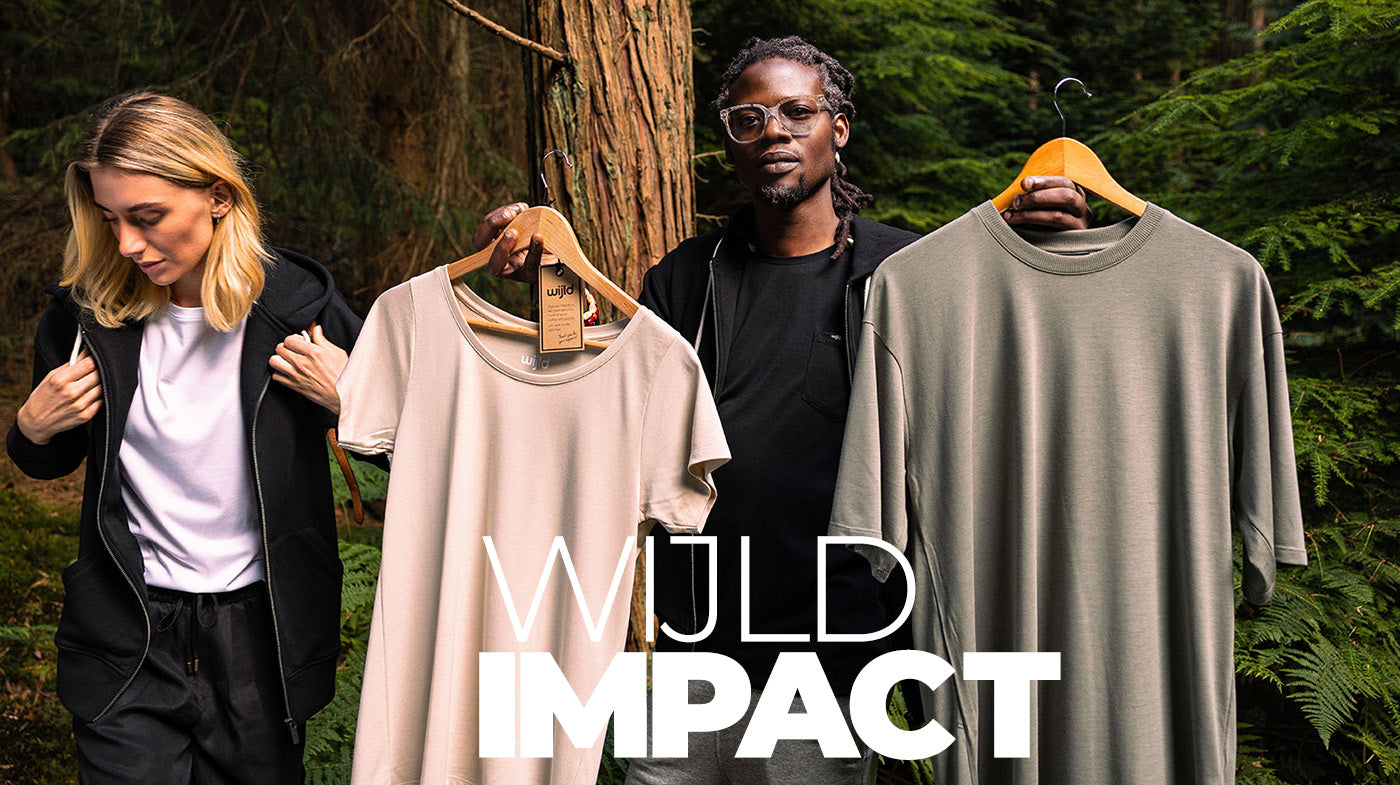Earth Overshoot Day 2025 – Living Beyond Our Means
Earth Overshoot Day marks the date when humanity has used up all the natural resources the planet can regenerate in a year. It’s a stark reminder of an uncomfortable truth: We’re living beyond our ecological budget.
The rest of the year is symbolically “borrowed” — from future generations, from exploited ecosystems, and from a natural world already stretched to its limits.
In 2025, Earth Overshoot Day falls on July 24th — once again, far too early. In fact, it’s a full day earlier than in 2024. What does that mean? We’re consuming water, soil, air, and raw materials much faster than they can be replenished. Our way of consuming isn’t sustainable — it’s excessive.
That’s one of the reasons we founded wijld 10 years ago. Since then, we’ve been creating clothing that’s not just “less bad” — it’s designed to make a real difference.
Instead of conventional cotton or cheap synthetics, we rely primarily on an alternative, sustainable natural fiber: wood. Responsibly sourced, produced in a nearly closed-loop system — exceptionally durable, incredibly soft, and gentle on the skin.
The impact so far — together with our community:
-
488,712,000 liters of water saved — enough drinking water for around 10,650 people for an entire year!
-
6,841,968 kg of CO₂ saved — that’s like driving around the Earth 1,307 times!
-
73,307 liters of chemicals avoided — roughly 489 toxic, smelly bathtubs worth!
Numbers that matter
There is another way. Not perfect, but better. Not at the expense of nature — but in harmony with it.
Overshoot doesn’t begin with grand gestures. It starts small. With what we wear. What we buy. And with the question: Can we still justify our consumption — or are we just continuing out of habit?
The fashion industry is responsible for around 10% of global CO₂ emissions — more than all international flights and maritime shipping combined. It also accounts for 20% of industrial water pollution. Every year, approximately 92 million tons of textile waste end up in landfills worldwide.
Almost every second, somewhere — often far from our sight — an entire truckload of clothing is discarded. The ecological and social consequences? Devastating.
Synthetic fibers also release microplastics, which enter the oceans via washing machines — with serious consequences:
-
🐟 Marine animals mistake microplastics for food — fish, mussels, even plankton ingest them. This can disrupt digestion and lead to starvation — with a full stomach.
-
🧬 Plastics accumulate in the food chain — from plankton all the way to humans. Studies show we ingest microplastics through seafood, salt, and even drinking water.
-
🧪 Microplastics carry harmful substances into the ocean — like pesticides and plasticizers. These can be toxic and disrupt the hormonal systems of living organisms.
-
🌊 Ecosystems fall out of balance — microplastics affect habitats like coral reefs and seagrass meadows, which are vital for CO₂ absorption and biodiversity.
Let’s face it: clothing has become emotionally overloaded — often used as compensation, self-expression, or reward. At the same time, the value we assign to each piece is steadily declining. The result? More clothes, faster turnover — and less meaning.
A T-shirt may seem like a small thing, but its impact can be enormous. Of course, we know a shirt won’t save the world. But it can be a statement — against throwaway fashion, against empty promises, and against the illusion that endless growth is the only way forward.
We believe in fashion that lasts — in your wardrobe, in your conscience, and in your sense of responsibility. And we hope that Earth Overshoot Day will one day be pushed further and further back. Year by year. Shirt by shirt.
Thank you for being part of this movement. Because: Every shirt counts.


